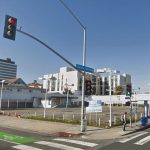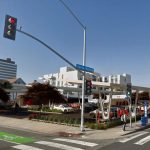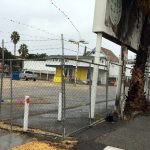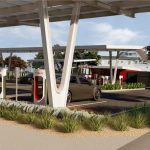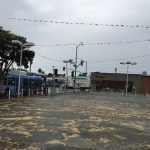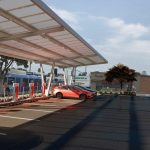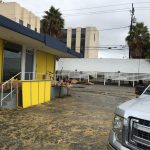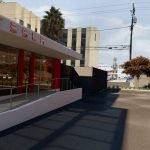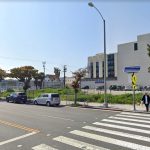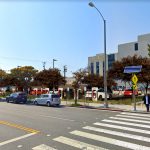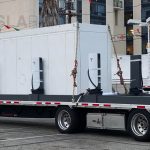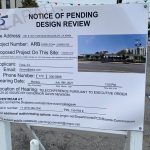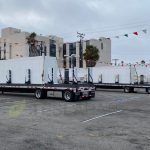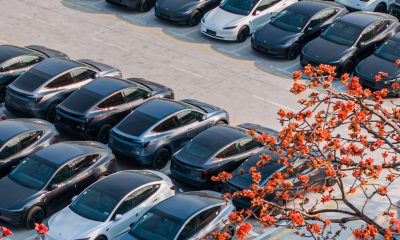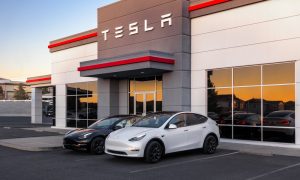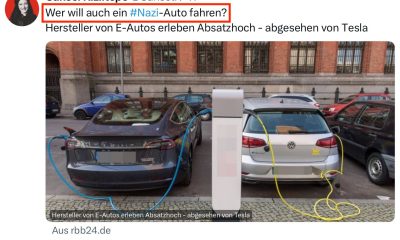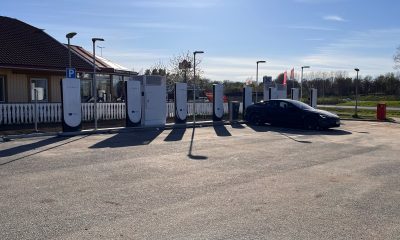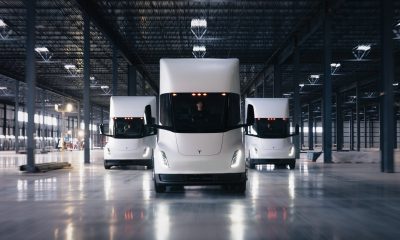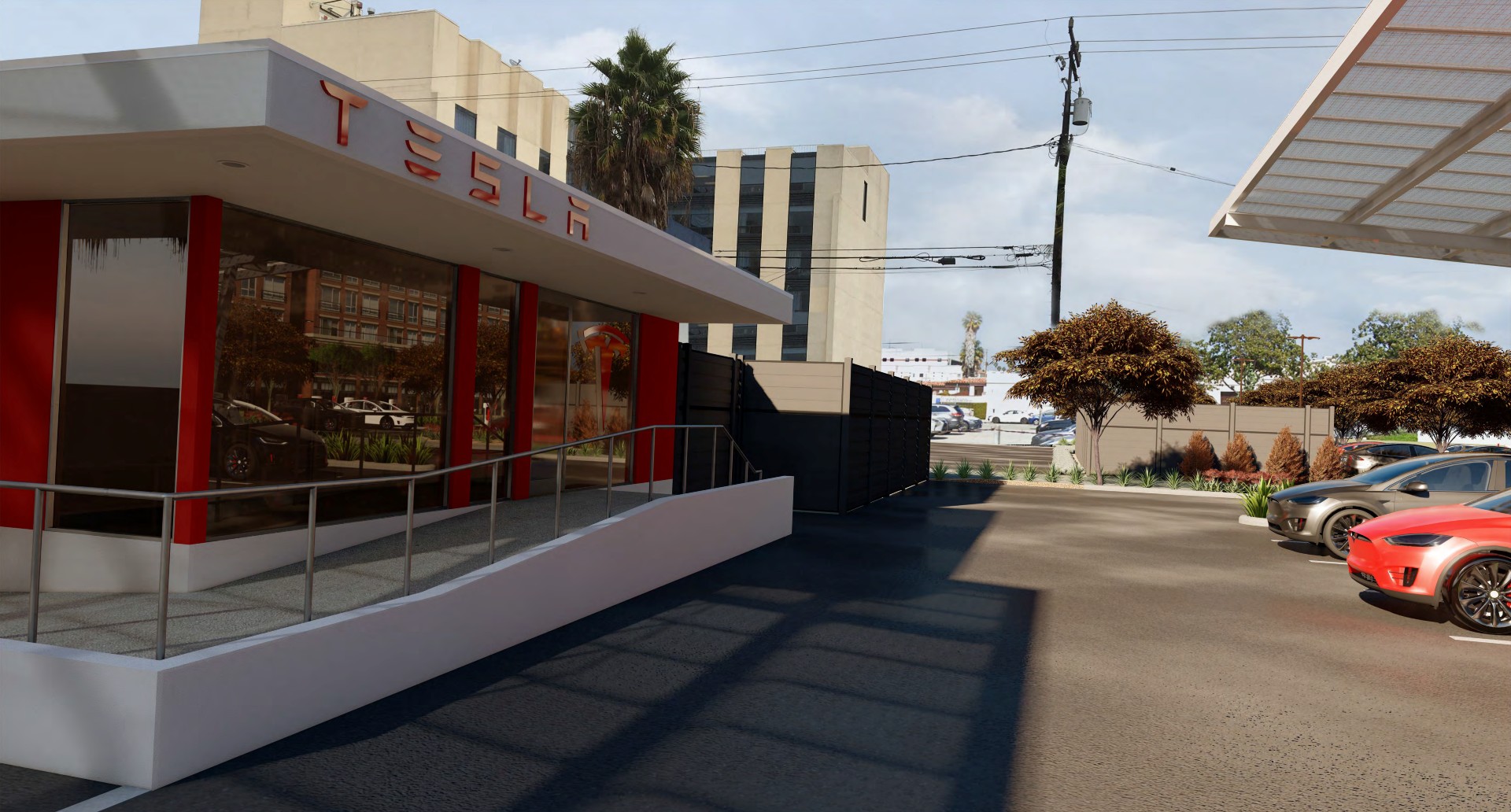

News
Tesla’s Santa Monica Supercharger imagined in new renders, but where’s the 50’s diner?
Tesla’s massive Supercharger facility in Santa Monica, California, has been visualized in new renders, giving plenty of indication of what is to come to what is arguably the automaker’s most highly-anticipated charging facility to date. While the new graphics give a look into the future with V3 charging stalls giving Teslas additional range, the photos also show the restroom facility that will be available to those who will utilize the 62-stall facility in the heart of Los Angeles’ beach town, the rumors of a restaurant and movie screen seem lofty, especially as real estate for the lofty design seems to be minimal, and the new renders didn’t include any visualizations of the planned 50’s diner.
Tesla’s 62-stall V3 Supercharger in Santa Monica
Since early 2021, Teslarati has been closely following the situation in Santa Monica. Initially, there was a lot of speculation of what was to come after a 2018 announcement from Elon Musk, CEO of Tesla, who said that a drive-in movie theater with a roller rink was coming to Santa Monica, giving Tesla owners one of the most unique Supercharging experiences yet. The project finally took off after Tesla gained preliminary approval to build 62 of its fastest EV chargers across two vacant lots, located at 1401 and 1421-1425 Santa Monica Boulevard.
The lot was at one time home to Steve Taub Porsche-Audi, but this dealership closed down. For a couple of years, the lots were used to sell seasonal items like Christmas trees and Pumpkins for Halloween. That is until Tesla submitted their 2018 plans for a restaurant and drive-in movie theater. However, it would not be until 2021 that Tesla finally started making some progress with the site.
Elon Musk confirms major Tesla Santa Monica Supercharger: 50’s-style diner, drive-in movie clips
After preliminary plans were approved and put into place, Tesla had a full-scale blueprint of what the facility would look like. Ultimately, the 62-stalls would be complemented with a restroom facility, Cybertruck-designed spots, and solar canopies that would provide the V3 chargers with power. The additional energy would be stored in a Tesla Megapack, just like many of its other large-scale commercial projects that require energy storage.
The project took a short-term detour as Santa Monica City Council members decided that the site could be more beneficially utilized as housing. This was a short-lived derailment of the Tesla project, and Santa Monica’s council members chose to let Tesla have their project.
The new renders: 1401 Santa Monica Boulevard
The new renders obtained by Teslarati via the GPD Group, the developer responsible for the project, show plenty of before and after angles of what will eventually be known as the Santa Monica Supercharger.
- Credit: GPD Group
- What 1401 Santa Monica Blvd. will look like after Tesla finishes the Santa Monica Supercharger project. (Credit: GPD Group)
- Credit: GPD Group
- Credit: GPD Group
- Credit: GPD Group
- Credit: GPD Group
- Credit: GPD Group
- Tesla’s full-service bathroom accomodations for 1401 Santa Monica Blvd. (Credit: GPD Group)
The renders above are for the first lot, located at 1401 Santa Monica Boulevard. This lot will be home to 36 of the 62 V3 chargers. Along with the chargers, the indoor restroom facility will be located on this lot. The GPD Group renders show that the company will transition an already-standing building on the lot into the restroom building. The solar canopies will also be installed on this lot, as it is the location of a majority of the Supercharging stalls.
The new renders: 1421-1425 Santa Monica Boulevard
The remaining 26 V3 Superchargers will be located on the lot at 1421-1425 Santa Monica Boulevard. The spaces in this lot are of varying widths and lengths, hinting toward Cybertruck-specific charging stalls as the automaker prepares for production of the all-electric pickup later this year.
- Credit: GPD Group
- Credit: GPD Group
Where’s the restaurant?
Now, unfortunately, there are no renders, images, or even hints that Tesla’s 50’s-style diner will even be at this location. Based on the images and previously published blueprints of the plans for the 62-stall Supercharger facility on Santa Monica Blvd., there isn’t much space for one, either. However, there are plenty of indications that Tesla has not included this in any plans, blueprints, or images as of yet. In fact, there is a strong possibility that the company will be submitting these soon, as there is a six-month revision period that Tesla can utilize that will expire in early September, according to documents.
Tesla is officially planning to enter the restaurant business
The documents that the Santa Monica City Council has released seem to suggest that there will be a restaurant on the premises, however. According to the subheading “Construction Plan Requirements,” Tesla will be required to oblige by sanitation and food safety requirements if it ultimately decides to build a restaurant at the facility, of course. It looks like it will be a relatively intimate space, as the documents state that there will likely be less than 50 seats on the interior of the restaurant. This makes sense, however, as there are only 62 stalls, to begin with, drivers and passengers will likely want to eat their food in their own car, and the planned 100 greatest movie clips of all-time that Musk has hinted toward will likely be projected on an outdoor screen or displayed through each vehicle’s individual center screen.
What’s going on at the site as of July 13?
Currently, several things are going on at the two vacant lots. First, the project will be subjected to a “Pending Design Review” next Monday, July 19th, at 7 PM PST. There are opportunities for members of the public to livestream or dial into the event. It is unknown what the call will actually provide, but it appears that the final steps could be finalized before construction can begin.
Additionally, Tesla has been transporting prefabricated Superchargers to the lots. Based on images sent in by a Teslarati reader, we can see that Tesla is bringing these prefab Superchargers to the area for what is likely to be temporary measures.
- Credit: Brain Deming
- Credit: Brain Deming
- Credit: Brain Deming
Tesla previously used prefabricated Superchargers at a site in Beaver, Utah. However, these Superchargers were not permanent, and they were utilized to likely charge vehicles that had arrived on site for unknown reasons. As you can see, they are identical to the Superchargers seen here.
For now, the Santa Monica Supercharger project remains in the hands of the City Council Members. However, next week, there should be more answers, as the call will likely allow Tesla to move forward with this highly-anticipated project.
News
Tesla China vehicle registrations rise 51% in April’s fourth week
In the week ending April 27, Tesla China saw 10,300 new vehicle registrations.
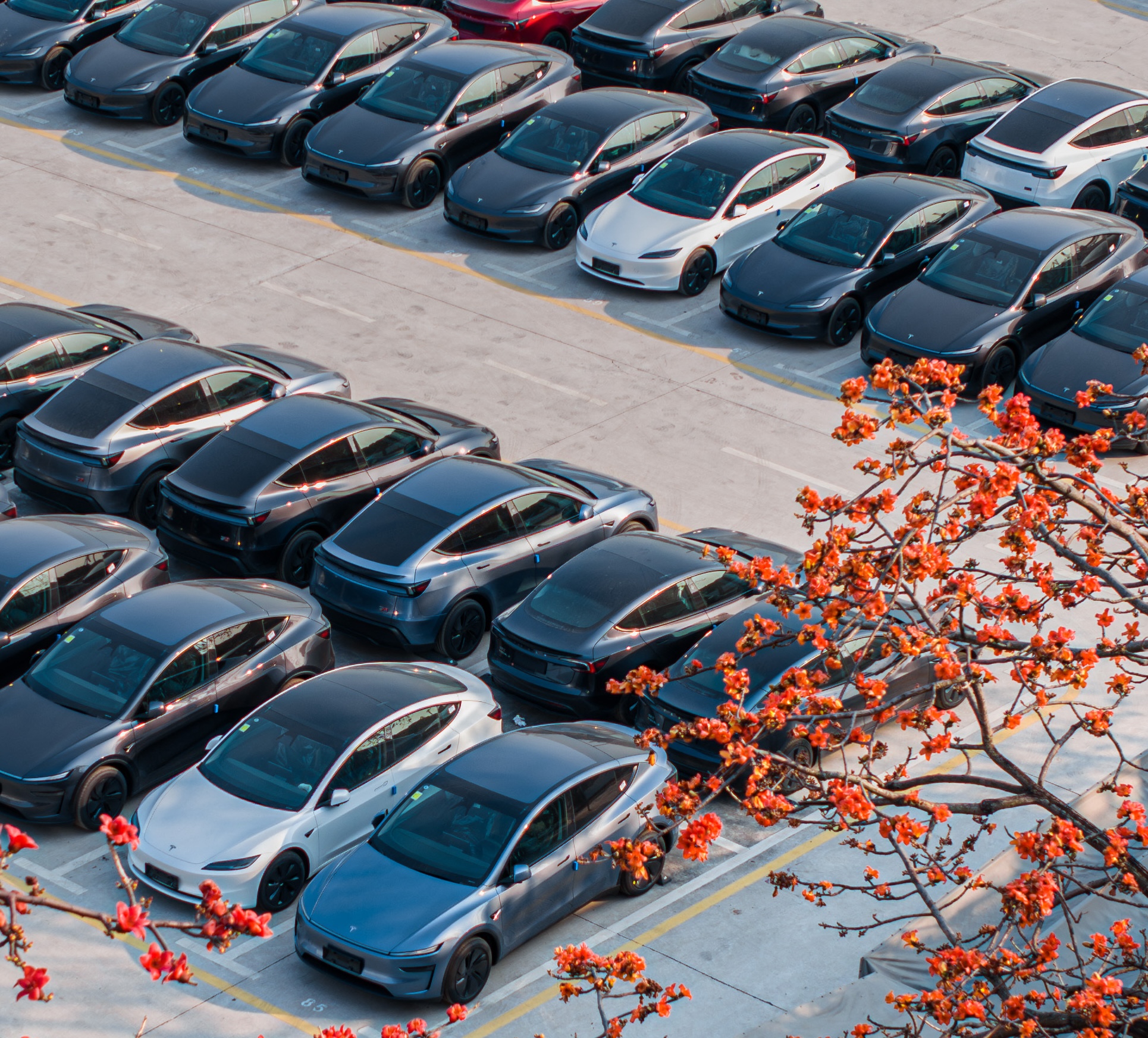
Tesla China’s new vehicle registrations saw a notable rise in the week of April 21-27, 2025. Over the week, the electric vehicle maker’s registrations saw an impressive 51% week-over-week rise, suggesting that domestic vehicle deliveries are on the rise once more.
Tesla China Results
In the week ending April 27, Tesla China saw 10,300 new vehicle registrations. This represents a notable rise from the company’s registration numbers in the past weeks of April. For context, Tesla China saw 3,600 registrations in the week ending April 6, 5,400 registrations in the week ending April 13, and 6,780 registrations in the week ending April 20, 2025.
Considering that April is the first month of the second quarter, expectations were high that Tesla China was allocating Giga Shanghai’s output for vehicle exports. With 10,300 registrations in the week ending April 27, however, it would appear that the company’s domestic deliveries are picking up once more.
Tesla China does not report its weekly sales figures, though a general idea of the company’s overall perforce in the domestic auto sector can be inferred through new vehicle registrations. Fortunately, these registrations are closely tracked by industry watchers, as well as some local automakers like Li Auto.
Tesla Model 3 and Model Y in Focus
Tesla China produces the Model Y and Model 3 in Giga Shanghai. Both vehicles are also exported from China to foreign territories. As per industry watchers, it would appear that both the Model 3 and Model Y saw an increase in registrations in the week ending April 27.
The Model 3, for one, appears to have seen 3,200 registrations in the week ending April 27, a 14% increase from the 2,800 that were registered in the week ending April 20. For context, Tesla China saw just 1,500 new Model 3 registrations in the week ending April 13 and 1,040 registrations in the week ending April 6.
The Model Y, on the other hand, saw 7,100 registrations in the week ending April 27. That’s a 77.5% increase from the 4,000 that were registered in the week ending April 20. Tesla also saw 3,900 registrations in the week ending April 13, and 2,540 registrations in the week ending April 6, 2025.
News
Volkswagen teams with Uber for robotaxi service with the ID. Buzz
Volkswagen and Uber team up to launch a driverless ID. Buzz robotaxi fleet in U.S. cities. Testing starts in LA this year.
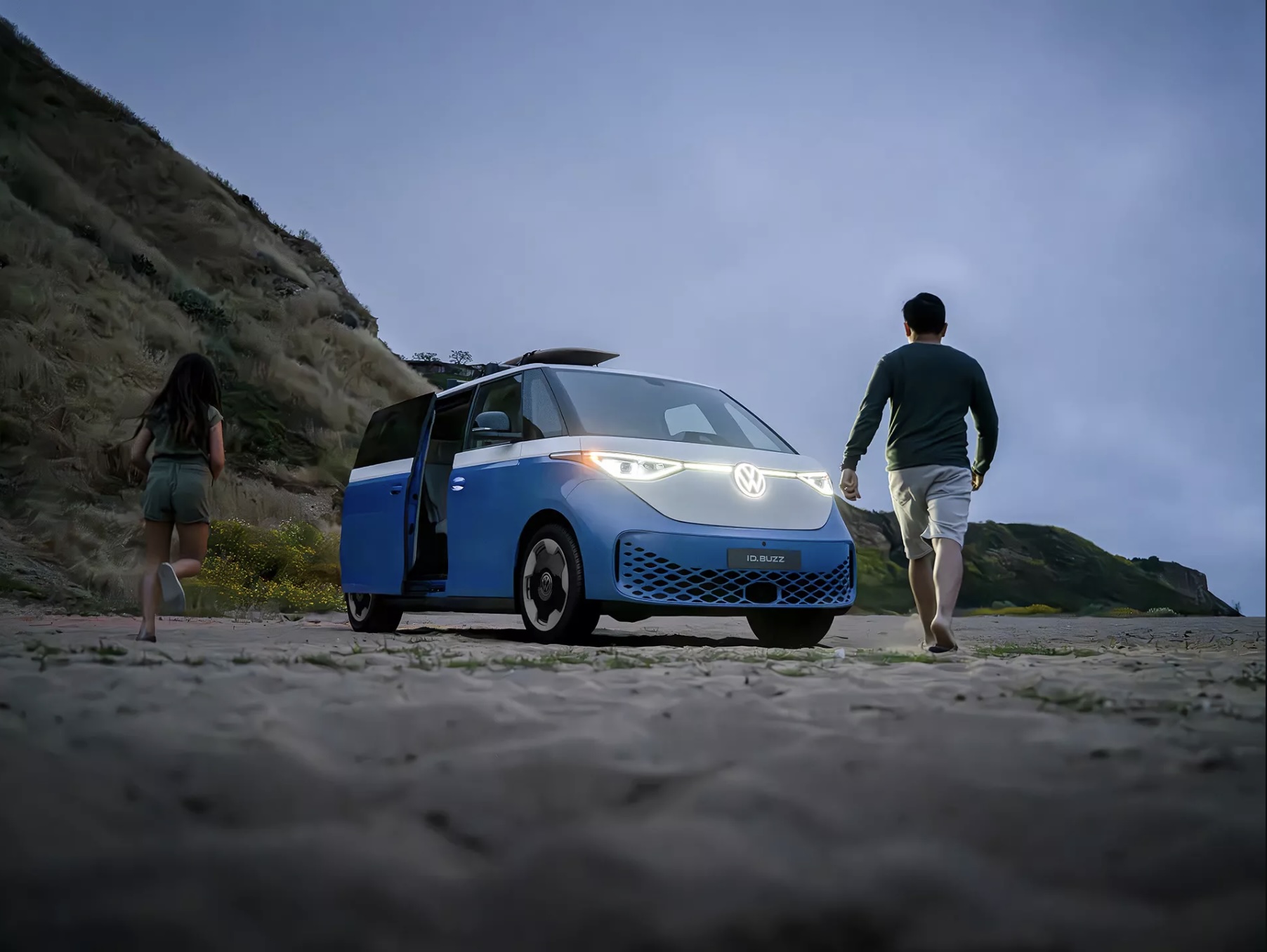
Volkswagen of America and Uber unveiled a plan to launch a commercial robotaxi service using autonomous electric ID. Buzz vehicles across U.S. cities over the next decade. The partnership marks a significant step for Volkswagen’s autonomous vehicle ambitions, leveraging Uber’s ride-hailing expertise.
The service will debut in Los Angeles by late 2026, with human safety operators initially overseeing the fleet before transitioning to fully driverless operations in 2027. Volkswagen ADMT, the German automaker’s autonomous subsidiary, will begin testing in Los Angeles later this year upon securing a testing permit from the California Department of Motor Vehicles. The California Public Utilities Commission will oversee permits for the commercial ride-hailing phase.
“Volkswagen is not just a car manufacturer — we are shaping the future of mobility, and our collaboration with Uber accelerates that vision,” said Christian Senger, CEO of Volkswagen Autonomous Mobility. “What really sets us apart is our ability to combine the best of both worlds–high-volume manufacturing expertise with cutting-edge technology and a deep understanding of urban mobility needs.”
The Trump administration’s recent policy shift, announced last Thursday by Transportation Secretary Sean Duffy, supports initiatives like VW and Uber’s partnerships by easing federal safety rules and crash reporting requirements on autonomous vehicle development. According to Duffy, the United States government wants to outpace Chinese competitors in autonomous vehicle development.
Volkswagen ADMT, which launched publicly in July 2023, has been testing 10 ID. Buzz vehicles equipped with Mobileye’s autonomous technology in Austin, reported TechCrunch. Two years ago, Volkswagen focused on selling self-driving vans and fleet management software rather than building its own ride-hailing service. VW’s strategy toward autonomous vehicles appears to have shifted, as reflected in its Uber partnership.
Uber will strengthen its autonomous vehicle portfolio through its partnership with Volkswagen. The ride-hailing service company has secured deals with over 14 firms, including Waymo in Austin and a forthcoming launch in Atlanta.
The Volkswagen-Uber collaboration positions both companies to capitalize on the growing robotaxi market. With testing imminent and regulatory support increasing, the ID. Buzz fleet could redefine urban mobility, blending Volkswagen’s manufacturing prowess with Uber’s ride-hailing network to compete in the evolving autonomous vehicle landscape.
News
These automakers are pushing to overturn California’s gas car ban
This lobbying group represents Detroit’s Big Three automakers, as well as several others selling vehicles in the U.S.
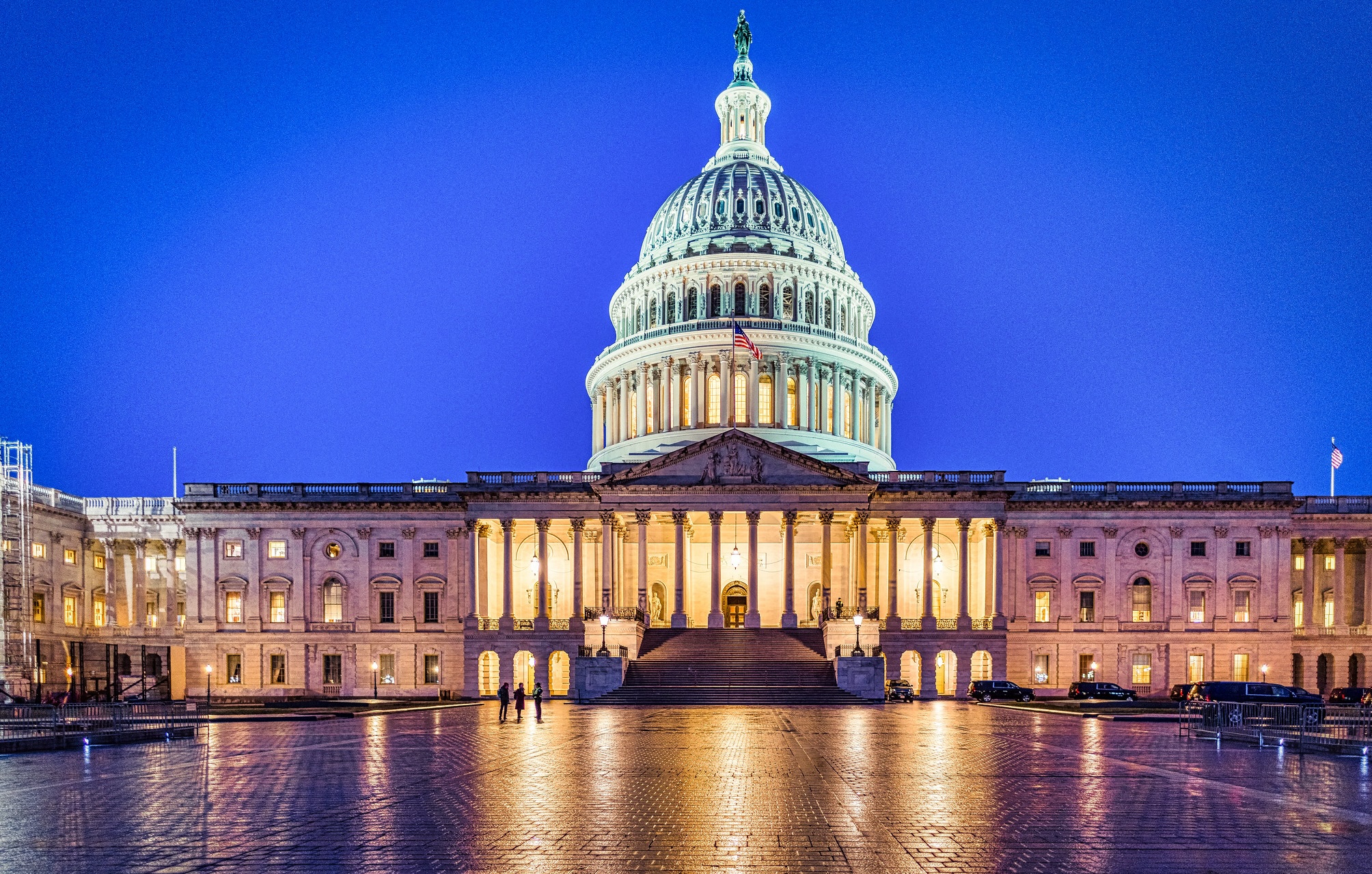
A lobbying group made up of several automakers is pushing Congress to ban California’s plan to phase out and ban new gas car sales altogether by 2035, ahead of a vote that could also affect the 11 other states that have followed with similar plans.
The Alliance for Automotive Innovation (AAI), an organization representing the interests of Ford, General Motors (GM), Stellantis, Toyota, Volkswagen, Hyundai, and several others, recently sent a letter to Congress requesting that it overturn a waiver granted to California letting it set its own emissions rules.
Later this week, the U.S. House of Representatives will vote on overturning the waiver granted to California under the 1968 Clean Air Act to impose the tightened standards, according to Reuters. In the previous letter, the AAI argued to Congress that automakers would be “forced to substantially reduce the number of overall vehicles for sale to inflate their proportion of electric vehicle sales,” adding that it would also boost prices and reduce competition in the market.
The waiver, enacted under the Biden administration’s Environmental Protection Agency (EPA), allows California to mandate at least 80 percent electric vehicle sales by 2035 under the Clean Air Act. The passage of disapproval of the waiver is being ushered under the Congressional Review Act, and an initial vote in the House of Representatives is set to take place on Wednesday.
READ MORE ON STATE EMISSIONS RULES: Tesla could face emissions credit tax in Washington
The U.S. Court of Appeals for the District of Columbia backed the EPA’s decision to grant the waiver last April, following a challenge from 17 Republican-run states. The group claimed that California was being given unconstitutional regulatory power in the decision, adding that other states didn’t have those same powers.
In December, the U.S. Supreme Court agreed to hear out bids from Valero, the AAI, and other groups to oppose the 2035 California gas car sales ban, which would begin phasing them out in 2026 if the waiver remains in place.
You can see the full list of members of the AAI below, including automakers and a handful of other tech companies.
Companies represented by the Alliance for Automotive Innovation (AAI)
Here’s the full list of AAI members, according to the lobbying group’s website:
- AESC
- AISIN
- Aptiv
- Autoliv
- BMW Group
- Bosch
- Denso
- Emergency Safety Solutions
- Ferrari
- Ford
- GM
- Harman
- Honda
- Hyundai
- InEos Automotive
- Infineon
- Isuzu
- Jaguar-Land Rover
- Kia
- LG
- Luminar
- Magna
- Mazda
- McLaren
- Mercedes-Benz
- Mitsubishi Motors
- Nissan
- Nuro
- Panasonic
- Porsche
- Qualcomm
- RV Industry Association
- Samsung
- SiriusXM
- SK On
- Stellantis
- Subaru
- Texas Instruments
- Toyota
- Uber
- VinFast
- Volkswagen
- Volvo
- Zoox
California proposal to allow self-driving tests for heavy-duty trucks
-
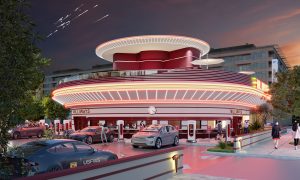
 News1 week ago
News1 week agoTesla’s Hollywood Diner is finally getting close to opening
-
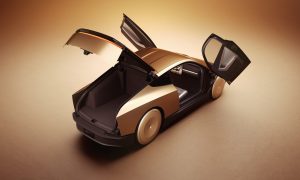
 Elon Musk2 weeks ago
Elon Musk2 weeks agoTesla doubles down on Robotaxi launch date, putting a big bet on its timeline
-
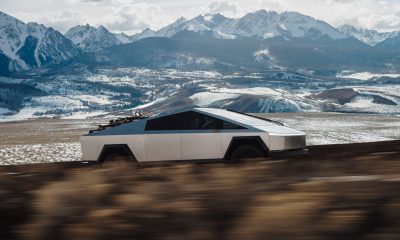
 News4 days ago
News4 days agoTesla is trying to make a statement with its Q2 delivery numbers
-

 News2 weeks ago
News2 weeks agoTesla’s top investor questions ahead of the Q1 2025 earnings call
-

 News2 weeks ago
News2 weeks agoUnderrated Tesla safety feature recognized by China Automotive Research Institute
-
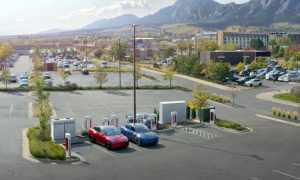
 News2 weeks ago
News2 weeks agoTesla reveals its Q1 Supercharger voting winners, opens next round
-
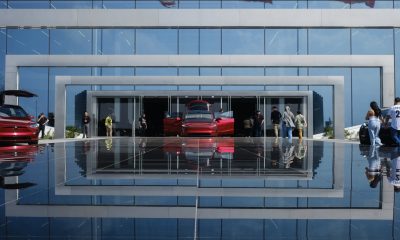
 Investor's Corner7 days ago
Investor's Corner7 days agoLIVE BLOG: Tesla (TSLA) Q1 2025 Company Update and earnings call
-
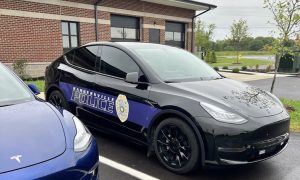
 News2 weeks ago
News2 weeks agoTesla police fleet saves nearly half a million in upkeep and repair costs

